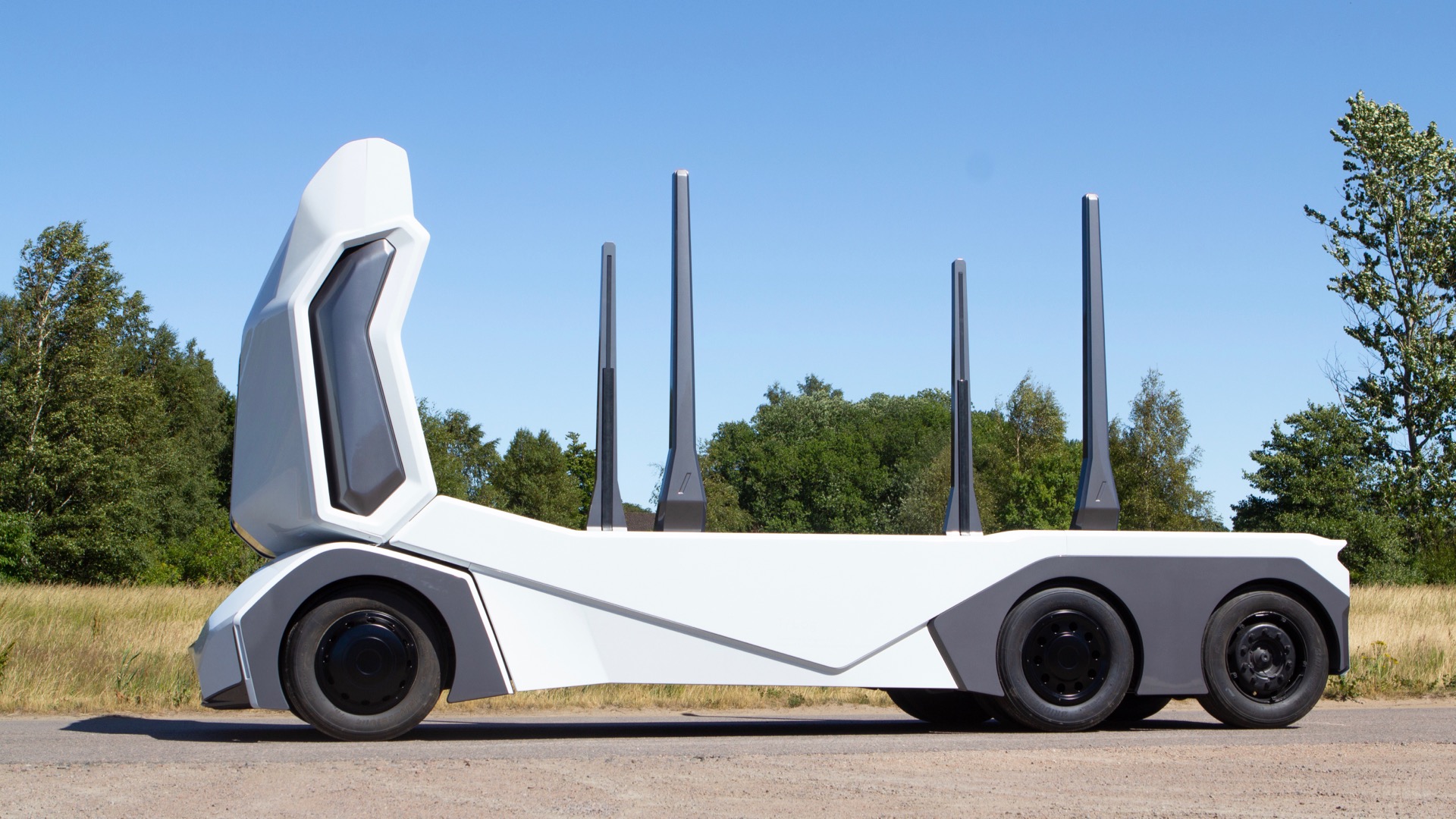

The Goodwood Festival of Speed seems like an odd place to unveil an autonomous logging truck, but that’s exactly what Swedish startup Einride did. The T-Log is all electric and designed to carry up to 16 tons of timber. And like Einride’s first proposed self-serving truck, the T-Pod, it has no space onboard for a human driver.
The T-Log uses tech from Nvidia to enable autonomous driving, but the truck can also be remotely controlled by a human operator hundreds of miles away using a system provided by Phantom Auto. The truck can also use real-time traffic data to adjust its route to avoid jams, or pick the route that allows for the most energy-efficient driving.
But Einride also claims the T-Log has some degree of off-road capability, and can navigate forest roads. Those roads are often unpaved and unmarked. Logging companies often build roads as needed, meaning they’re not likely to show up on any maps, either. Today’s prototype autonomous vehicles typically stick to paved roads with clear lane markings and signage that have been well mapped. While MIT has tried to devise a way for self-driving cars to navigate unmapped roads, this will likely be a major technical challenge for Einride.
A 300-kilowatt-hour lithium-ion battery pack gives the T-Log an estimated range of 120 miles per charge. That may not seem like much for such a big battery pack, but the T-Log is a big vehicle that will carry heavy loads. The truck could also be operated out of a central depot, keeping it close to a charging station at all times.
Einride plans to deploy the T-Log on public roads by 2020. The startup is far from the only company looking to develop self-driving trucks, but all players face the same technological and regulatory hurdles as self-driving cars, with the added bonus of potential labor disputes. Autonomous trucks are likely to cut jobs, and unlike taxi and ride-hailing drivers who could lose their jobs to self-driving cars, truckers are well organized and vocal.